In 1991, the National Spiritual Assembly of the Baha’is of the United States released a statement about Racial Harmony and America’s Spiritual Destiny. I wrote and published an abridged summary as a pamphlet. I printed it twice and sold about 40,000, but it has been out of stock for about a decade. In light of recent events, I decided to reprint it – this time in color and at a reduced price compared to my other pamphlets.
Much of the chaos we are experiencing in the United States can be traced back to actors with ill-intent stoking the fires of racism to further their personal agendas. Sadly, that technique has been working for many generations. Only a heartfelt belief in the oneness of humanity will be able to quench the flames of hatred.
Even as a summary, the pamphlet is a bit long, but it contains lots of good information about the Baha’i perspective on race relations – especially as it relates to the United States. If people read it, great. But even if they don’t, the dove design on the cover, the title and the power of holding something tangible in their hand will make the effort of distributing it worthwhile.
It is a legal-sized sheet (8.5×14″) folded down in eight panels to letter size.
Click on the Pamphlet Text tab to read the text. The original complete statement is still available from the Baha’i Distributions service as a 14-page book for $2.95. (The above link will take you away from Special Ideas.)
Pamphlet Text
INTRODUCTION
Racism is the most challenging issue facing America. Our country is made up of people from all over the world. Our motto, seen on every dollar bill, is “E pluribus unum” which means “Out of many, one.” Our ideals of freedom under law have inspired millions of people throughout the world. We cannot continue to hold prejudice against any racial or ethnic group without being untrue to our beliefs. Racism is an insult to human dignity; a cause of hatred and division and is a disease that destroys society.
In spite of our efforts to eliminate it, racism continues to work its evil upon this nation. Progress towards mutual respect and unity has been painfully slow. Recent events make the need for solutions even more urgent. If we ignore this problem we expose the country to physical, moral and spiritual danger.
The U.S. Bahá’í community appeals to all people of goodwill to rise up and resolve this basic problem in our country. We do so because we feel a shared responsibility, because we have had positive experiences with diverse Bahá’í communities around the world, and because our Faith teaches that the United States has a great destiny awaiting it as a nation.
SECTION I.
The oneness of humanity is the heart of the Bahá’í Faith. In 1863, Bahá’u’lláh, the Prophet-Founder of our faith, proclaimed: “The well-being of mankind, its peace and security, are unattainable unless and until its unity is firmly established.”
Humanity as a family is growing up. The world is approaching a maturity which makes unity possible. Because the United States is made up of people from every part of the world, it has a unique role to play in this process. Sadly, it cannot play this role because racism, like a cancer, is destroying the very foundation of our nation.
Throughout history, one part or another of the human race has tried to prove that it was different from the rest. This has led to endless conflicts in the name of tribe, race, class, nation, and religion. Instead of proving that groups of people are significantly different, these conflicts have proven just the opposite. The fact is, if given the same circumstances, all people behave in the same ways. In trying to prove the un-provable, humanity has become confused. The Bahá’í Faith teaches that without religious guidance, a clear vision of our true nature, our purpose and our destiny is impossible. The writings of Bahá’u’lláh, the founder of the Bahá’í Faith, offer just such guidance in His teachings on the oneness of humanity.
The oneness of humanity is a spiritual and scientific fact. We need now to begin applying it to life in the United States. The principle of the oneness of humankind “is no mere outburst of ignorant emotionalism or an expression of vague and pious hope. . . . It does not constitute merely the enunciation of an ideal. . . . It implies an organic change in the structure of present-day society, a change such as the world has not yet experienced.” In other words, a change of heart is needed and that change needs to show in the way our society operates.
SECTION II.
Applying the principal of oneness to the daily life of our nation will both require and create great changes. Prejudice and discrimination have created a large gap in living standards. African Americans, American Indians, and Hispanic Americans suffer from poverty far more than white Americans do. But in the end, all Americans pay a heavy price for the continued effects of prejudice.
American businesses have noticed the negative effects of ethnic conflict on our economy. In response, many firms are starting programs to reduce racial tensions in the workplace. These steps are important and should be encouraged. However, if their goal is limited to economic growth, they will fail. No program can succeed unless it is founded on mutual respect and a common acceptance of the oneness of humanity.
Respect and personal dignity are deep-seated human needs. No educational, economic or political plan can substitute for them. Without respect, genuine regard and a general attitude of support from society, people lose hope. Without hope, people lose the moral power to live up to their true potential. Mutual respect needs to be grounded in a spiritual and moral truth which can be as universally accepted as the air we breathe. The Bahá’í community is convinced that the oneness of humanity is such a truth.
The fact that humanity is one species should be at the heart of educational programs in the United States. In addition to teaching basic intellectual skills, each school should teach the moral skills of tolerance, brotherhood, and appreciation of diversity. In this way, education can be the shortest route out of poverty, and out of prejudice as well.
SECTION III.
Neglecting the effects of racism endangers America’s order and security. From the day it was born, the United States has had two standards. Our Declaration of Independence proclaimed equality and justice, but our Constitution made slavery legal. Slavery poisoned the mind and heart of the nation until it was officially ended by a bloody civil war. The evil consequences of slavery are still visible today and still affect the behavior of both Black and White Americans.
Healing wounds and building a society where different kinds of people live as members of one family are the biggest challenges facing America today. Our peace and prosperity, even our role as a world power depend a great deal on resolving these issues.
The fact that the world is watching should convince us to eliminate every trace of racism in our midst. America’s example would have a great effect on world society and would help to establish world peace. “For the accomplishment of unity between the colored and white,” the Bahá’í writings proclaim, “will be a cause of the world’s peace.”
Both Black and White Americans are responsible for the building of a society in which the rights of all its members are respected and guaranteed. To start, both races must have faith that this is possible. Neither race should assume that getting rid of racism is the other’s job. Both must recognize that unity is essential for everyone’s survival. Both must recognize that there is only one human species. Both must recognize that only a unified society can solve the social and economic problems facing us.
It is obvious that large numbers of both Black and White Americans are frustrated by the current state of race relations. The old ideas of racial segregation are once again gaining popularity. As the problems of crime and drug addiction multiply we seem ready to say that the years of working for integration have been worthless. But as dark as the situation appears, can we honestly say that no progress has been made since the days of sit-ins at lunch counters across the South?
Some believe that the various races are so different that they must be segregated from each other. Would this be sensible? Doesn’t this idea deny our common humanity? Wouldn’t it be a formula for the total breakdown of civilization? Those who raise the call for separation preach a grim vision. If we were to try such a thing, where would either Black or White Americans divide their cultural heritage?
Racism runs deep. It infects the hearts of both Black and White Americans. No one remains completely untouched by it. Both groups must realize that solving such a problem will take time and great effort. The Bahá’í writings warn: “Let neither think that anything short of genuine love, extreme patience, true humility, consummate tact, sound initiative, mature wisdom, and deliberate, persistant, and prayerful effort can succeed in blotting out the stain which this patent evil has left on the fair name of their common country.”
Both groups must understand that no real change will come about without close association, fellowship, and friendship among diverse peoples. Variety of color, nationality, and culture improves the human experience. It should never become a barrier to friendship or to marriage. Bahá’u’lláh wrote, “The tabernacle of unity has been raised; regard ye not one another as strangers. Ye are the fruits of one tree and the leaves of one branch.”
SECTION IV.
Our appeal is aimed mostly at the individual American because changing a whole nation really depends on changing the hearts and characters of the people who live here. No great plan of action can succeed without the backing of the people. And so we respectfully and urgently call upon our fellow Americans from every background to look at the racial situation with new eyes. We ask you to become even more determined to overcome the racism that keeps America from realizing her glorious destiny.
We mention the experience of the Bahá’í community, not because it is perfect, but because it shows great promise in overcoming racism. We offer it as a means of encouragement and proof of what can be done.
From its start in 1863, the Bahá’í community has been dedicated to the principle of the oneness of humanity. Bahá’ís rely upon faith in God, daily prayer, meditation, and study of scripture to help us grow in character. Our aim is to create a world civilization that will, in turn, create better people. We think of the human family as a body, and believe that “when one part of the organism suffers all the rest of the body will feel its consequence.”
The Bahá’í community has been guided and inspired by such principles for more than a hundred years. We have worked together for over a century, and have achieved a high level of unity despite the different races and backgrounds of our members. Bahá’ís see unity as a law of life, and so all prejudices are seen as diseases that threaten life. We believe that if we focus on curing the disease of disunity first, then solving the world’s other spiritual and material problems will be easier.
Because of our experience with building models of unity, the Bahá’ís offer the teachings of their Faith and the example of their community for examination. We are convinced that these can help defeat racism in America. We make this offer with firm faith in the assistance of our Creator, Who, out of His infinite love, brought forth all humanity from the same stock and intended that we all belong to the same household – earth.
*This is an abridged summary of:
“The Vision of Race Unity – America’s Most Challenging Issue” A Statement by the National Spiritual Assembly of the Bahá’ís of the United States. The original statement, released in 1991, was distributed to leaders of thought throughout the United States. This abridged summary was published by Special Ideas, an independent publisher, in order to make the ideas presented in the original more accessible to the general public.
©1997 Special Ideas Additional copies available from BahaiResources.com
For a copy of the original document, contact your local Bahá’í community or call:
1-800-22-UNITE
For additional information, visit
bahai.org or bahai.us
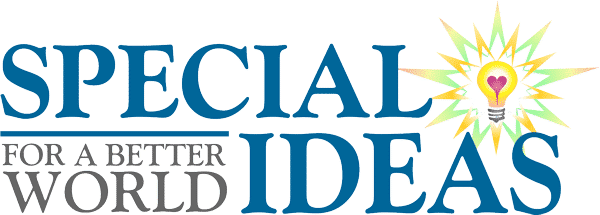



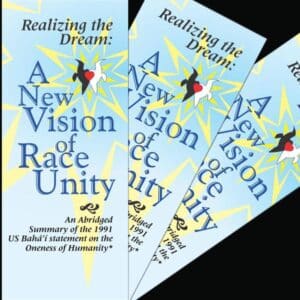

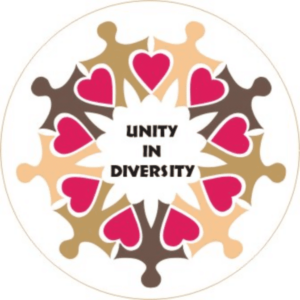
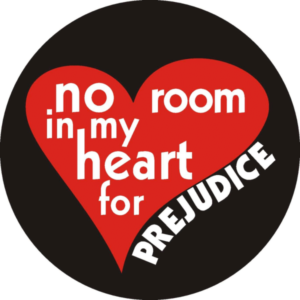

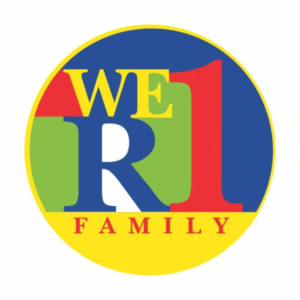

Sandra Clark –
Carl Difeo USA Valet –
well writen
Kay Larson –
Not so fond of this. Would rather take a deeper look at a book such as “In Pursuit of a More Superb Mission” as an approach to the elimination of racism, and a framework for action.
Cheri B. –
Very nice as a hand ot to special events or for seeker information.